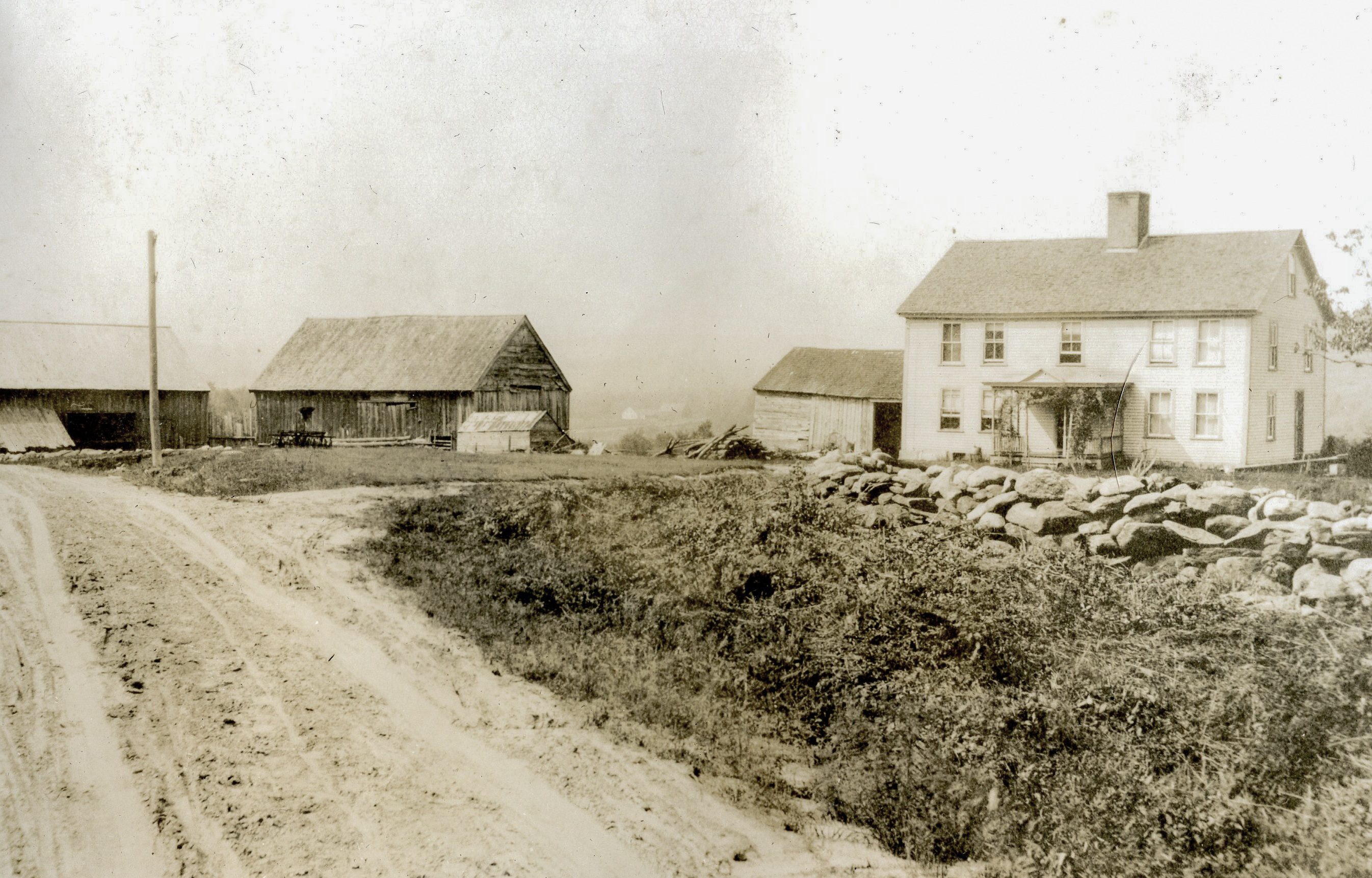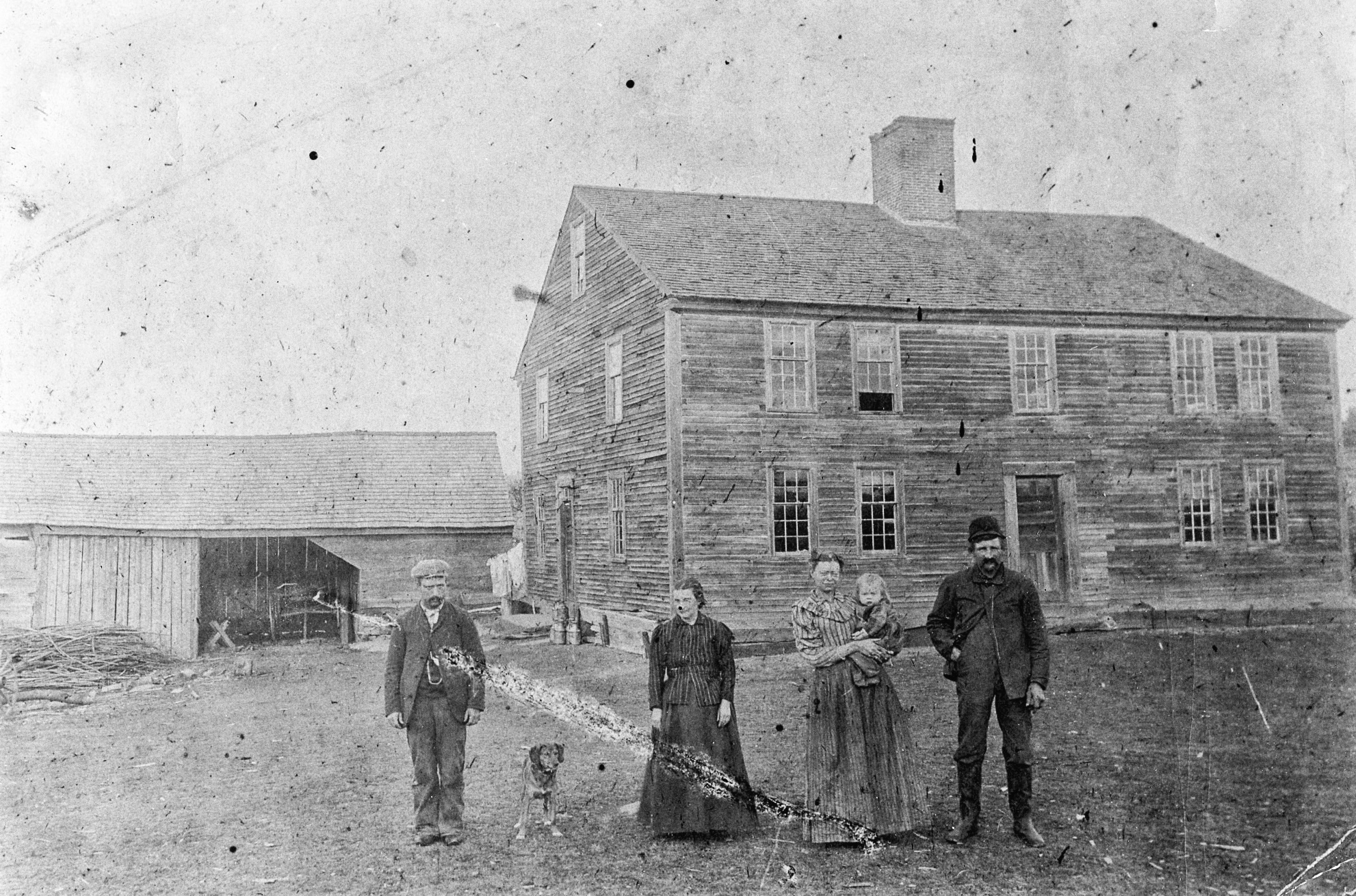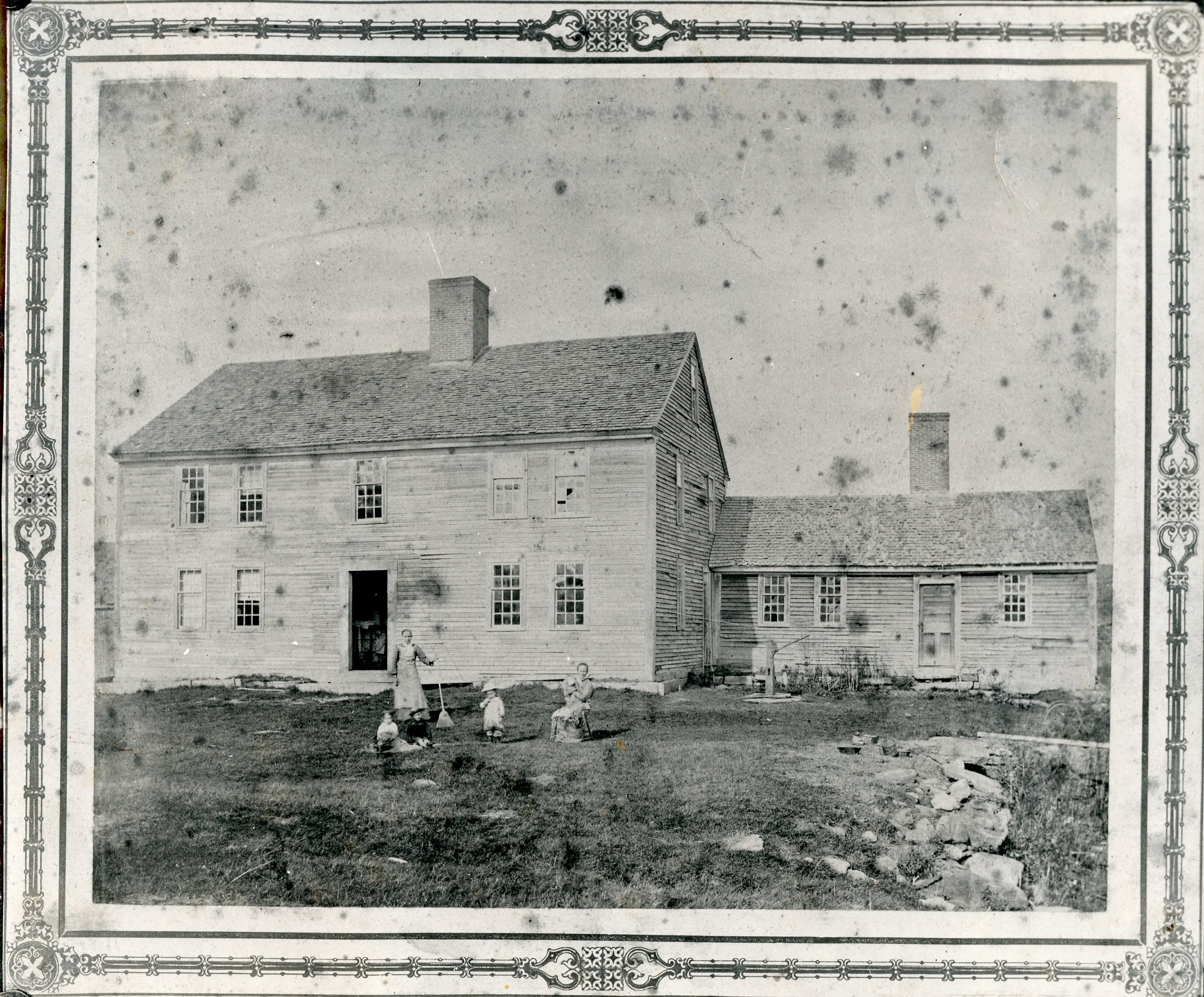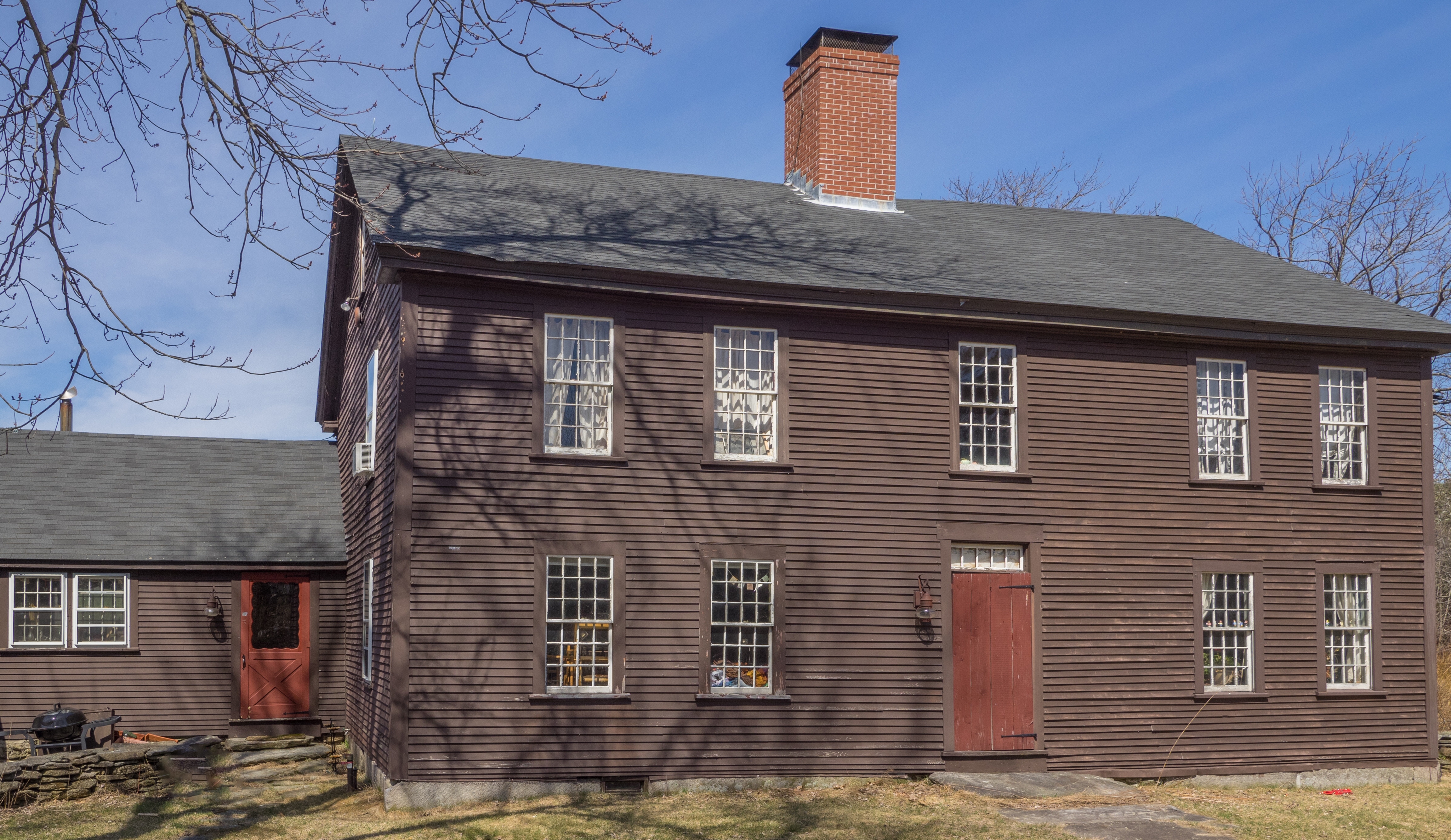Whittemore Tavern and the Shakers
About the year 1784. a number of New Ipswich citizens gave credence to the divine mission of Mother Ann Lee the leader of the sect of Shakers. The leading man among the followers was Amos Whittemore who lived at the foot of Whittemore Hill. At his house their meetings were held .
They would assemble forty or fifty from New Ipswich and neighboring towns. As described in the Augustus Addison Gould History of New Ipswich their religious services must have interesting:
"Their exercises consisted of furious and long-continued whirling and dancing, exceeding in this respect anything in the annals of savage war-dances; they were performed with half naked bodies, and attended with singing, shouting and shrieking which could be heard for miles; and in short they resembled drunken bacchanals or raving wild beasts rather than rational beings." (Page 190)

After a year or two the Shakers moved to Harvard. Amos remained with them for a while but eventually returned to New Ipswich with Sarah his young daughter. He believed she possessed supernatural powers. Exerted upon his cattle and other subjects. When she died she was placed in a box of rough boards and denied the common rites of burial.

There is also a mention of witchcraft in the Augustus Addison Gould History of New Ipswich related to the group that would gather at the Whittemore House:
"There were several other dames who enjoyed the unenviable reputation of being witches. One especially, with her high cap, bible and yardstick, which she usually carried withe her, and which regarded as her talisman, was looked upon with superstitious awe, not only by the youth of the neighborhood, but by some of the most pious and venerable men and women too. It was gravely asserted by a most excellent deacon, that on attacking a cat in his barn, with a pitchfork, it was suddenly turned into a human hand; another worthy man asserted that a cat came into the sawmill and placed her paw on the saw while in motion and instantly stopped it." (Page 191)
The House also served as a stagecoach stop on the Boston to Keene run as New Ipswich resident Mark Mansfield describes in the photo below.

They would assemble forty or fifty from New Ipswich and neighboring towns. As described in the Augustus Addison Gould History of New Ipswich their religious services must have interesting:
"Their exercises consisted of furious and long-continued whirling and dancing, exceeding in this respect anything in the annals of savage war-dances; they were performed with half naked bodies, and attended with singing, shouting and shrieking which could be heard for miles; and in short they resembled drunken bacchanals or raving wild beasts rather than rational beings." (Page 190)

After a year or two the Shakers moved to Harvard. Amos remained with them for a while but eventually returned to New Ipswich with Sarah his young daughter. He believed she possessed supernatural powers. Exerted upon his cattle and other subjects. When she died she was placed in a box of rough boards and denied the common rites of burial.

There is also a mention of witchcraft in the Augustus Addison Gould History of New Ipswich related to the group that would gather at the Whittemore House:
"There were several other dames who enjoyed the unenviable reputation of being witches. One especially, with her high cap, bible and yardstick, which she usually carried withe her, and which regarded as her talisman, was looked upon with superstitious awe, not only by the youth of the neighborhood, but by some of the most pious and venerable men and women too. It was gravely asserted by a most excellent deacon, that on attacking a cat in his barn, with a pitchfork, it was suddenly turned into a human hand; another worthy man asserted that a cat came into the sawmill and placed her paw on the saw while in motion and instantly stopped it." (Page 191)
The House also served as a stagecoach stop on the Boston to Keene run as New Ipswich resident Mark Mansfield describes in the photo below.






Comments
Post a Comment
I'd like to hear from you